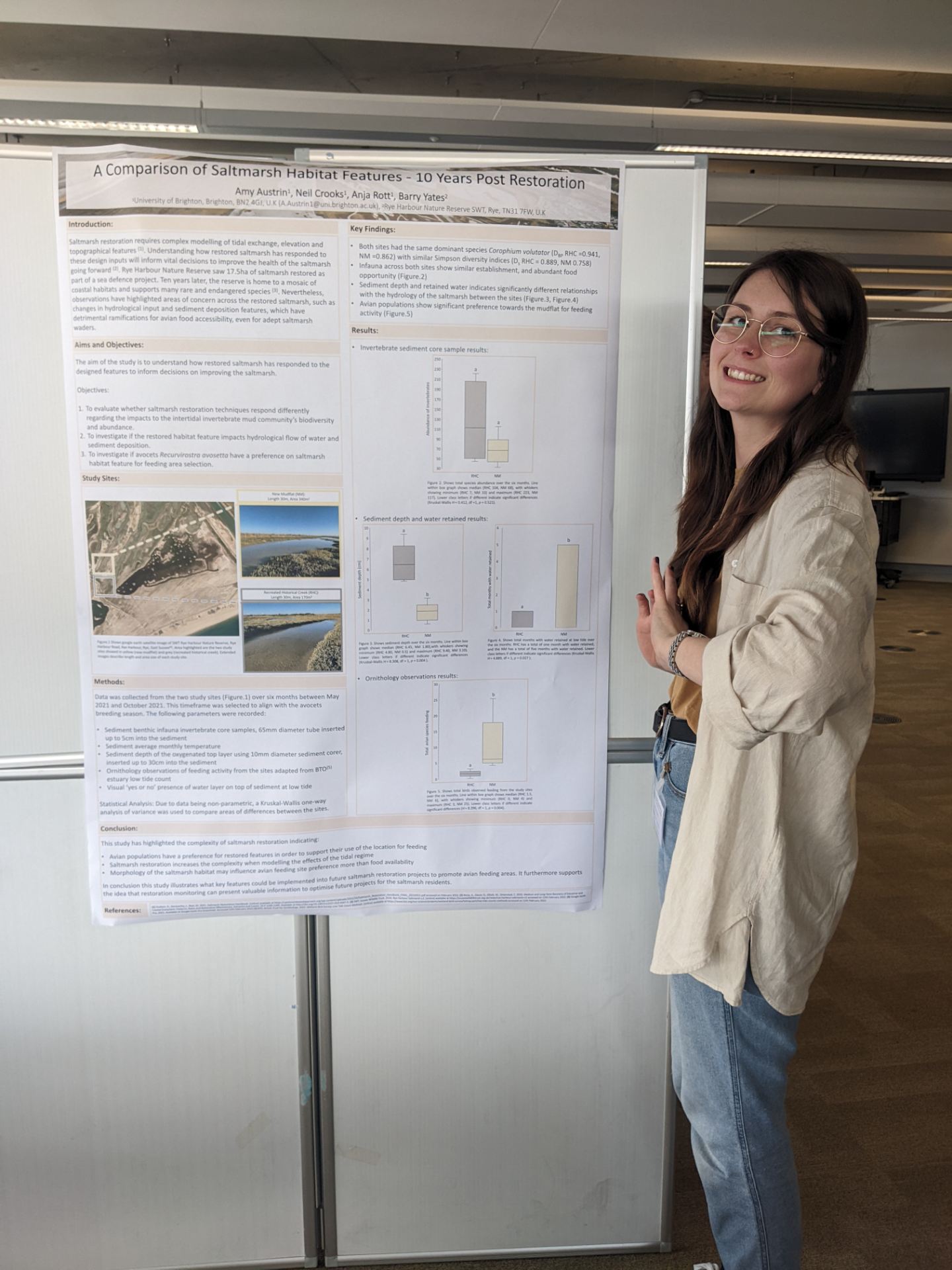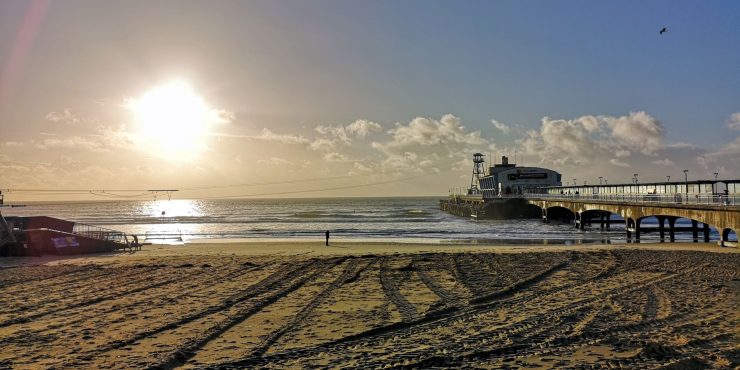We attended the UK Young Coastal Scientists and Engineers Conference, our first-ever conference, and it was a great yet somewhat scary experience!
After our abstract applications were accepted in February, we started the daunting task of preparing our posters, learning the best way to display the data, and making summaries with enough information but without being overwhelming. This was a learning curve, but the outcome of our posters was great, and we were all very proud of what we produced.
The 4th of April came around very quickly, and the drive down to Bournemouth felt as if we were travelling towards the unknown. This was our first conference, and our collective imposter syndrome was in full force!
As we walked into the university the first step was to collect our name tags. Next was to find our way to the poster room. However, we were the last three people to arrive and put up our posters, and the room was full of people. This was probably the scariest part of the conference, getting through the initial nervousness, trying to walk in with confidence and putting up the poster with a smile.



The organisers quickly arranged an ice breaker activity to get everyone talking, sharing who they are, their project, etc. It was as awkward as ice breakers typically are, but we all very quickly warmed up to each other and found out that it was most people’s first conference, which helped calm down the imposter syndrome. The other conference members also found out we three were undergraduates, and everyone seemed very impressed we had the confidence to attend as most people were Master or PhD level.
The first day of talks was based on coastal engineering, such as modelling wave action, coastal change and coastal deference. These talks were very interesting, but we noticed a theme of missing the ecological impact of the research. This experience helped us understand how to question research. However, we were too scared to ask a question out loud! In the evening, we visited the beach at Bournemouth and had a lovely meal that the conference organisers arranged, and this helped us further connect with everyone. However, we did miss out on evening drinks as all three of us were exhausted from the day and wanted to be well-rested for day two.
On day two, the focus was on ecological impact in coastal areas. This was our collective favourite day. It started with a fantastic talk covering enhancement, fish tracking and conserving marine habitat. This was followed by talks on artificial rockpools and 3D printing for habitat construction and ended with a great discussion on public perception of who is responsible for managing coastal flooding. We also got to present our posters to anyone who had questions. This was an amazing opportunity to experience describing our projects. Everyone was so lovely and interested in all our projects, and some were even surprised our projects were undergraduate, which was nice to hear!



With the conference now coming to an end, we were all very proud of ourselves for turning up and pushing ourselves out of our comfort zones to attend and discuss our projects. This was an opportunity that we are very privileged to receive, and we thank everyone who helped make this happen. Next year the conference is in Brighton, even if you don’t present a poster, definitely try to attend as the presentations were excellent and showed a range of research to help inform and inspire all young scientists.
Amy is studying Ecology and Conservation BSc(Hons)

Published by